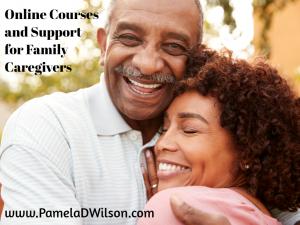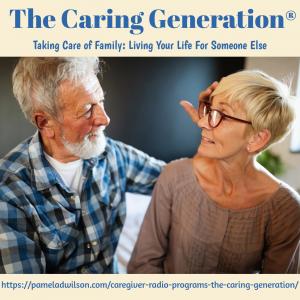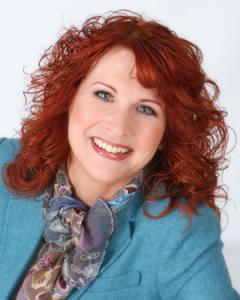Caregiver Subject Matter Expert Pamela D Wilson Releases New Podcasts and Videos
Pamela D Wilson, caregiver subject matter expert, responds to caregiver requests with recent videos on her YouTube Channel and The Caring Generation® podcasts.
GOLDEN, CO, USA, June 7, 2021 /EINPresswire.com/ -- The Demands of Caregiving
Caregiver subject matter expert, Pamela D Wilson recognizes that being a caregiver for a parent or a spouse or being an aging adult living alone raises many uncertainties. Adults have to navigate family relationships that may be contentious and the healthcare system with bureaucratic red tape that most healthcare consumers fail to understand. Rather than continuing to pursue care that is beneficial to health, many caregivers and aging adults give up.
When aging parents or a spouse need care, family relationships can be challenging. Coming together to care for a parent after children have been out of the house and living independently for years highlights lifestyle changes and differences of opinion.
Adult children who feel an obligation or duty to care for parents may resent having their lives derailed to be constantly available to help parents. Feelings of resentment enter into spousal and adult children caregiving relationships.
The Caring Generation® podcasts with corresponding videos from Wilson's YouTube Channel plus the show transcripts for those who prefer to read can be found on Wilson’s website:
• Taking Care of Family: Living Your Life For Someone Else
• What is 24 7 Care for the Elderly?
• Help for Seniors Living Alone
• Putting Parents into a Nursing Home
• Caregiver Anger and Resentment
• Levels of Care for Elderly
• How to Cope with a Chronically Ill Spouse
Wilson Simplifies Complexities for Caregivers
Becoming a caregiver is often an unexpected event. What begins as a few hours a week here and there, over time, becomes twenty or more hours a week for most caregivers. Caregivers who want to be supportive continue saying yes to requests until they become burned out, physically and mentally exhausted.
Caregivers, spouses by default, and some adult children accept the responsibility to become a 24/7 caregiver, rarely making time for themselves. When caregivers become exhausted physically, their emotions take over. Becoming impatient and moody can become a behavioral pattern that spirals toward a lack of self-care.
Nearly thirty percent of caregivers die before the person for whom they care. Many experience health issues related to low immune system functioning and poor healing abilities.
Wilson’s conversations with caregivers and aging parents through 1:1 eldercare consultations by telephone or virtual meetings, videos, articles in her Caring for Aging Parents Blog, Caregiver Library, and The Caring Generation podcasts support balance in care relationships. Caregivers may unintentionally take on more responsibility than necessary, making an elderly parent or a spouse more dependent on assistance.
Caregiver Exhaustion Results in Compromised Care For Aging Parents and Spouses
Most caregivers don’t realize that being the person who does it—day after day—eventually results in poor care and unintentional neglect of a parent or a spouse. Aging parents and spouses complicate situations by becoming overly dependent upon the caregiver—making the caregiver feel more guilty about desiring time for him or herself.
Care receivers who become dependent on caregivers can focus on their needs to to the exclusion of other aspects of life—including the caregiver’s well-being and needs. When caregivers fail to set boundaries for what is possible versus what a spouse or parents desire, the health and well-being of the caregiver dramatically suffer. Some adult children caregivers give up or delay everything—employment, income, education, friendships, partner relationships, and health to care for elderly or sick parents.
While culture, religion, traditions, and family background significantly affect caregiver expectations, losing sight of the potentially damaging impact is risky. When the caregiver’s health suffers, who will care for a spouse or aging parent whose needs have become all-encompassing?
Chronic Disease, Alzheimer’s, and Dementia Impact Caregiving
COVID has brought attention to the severe and potentially life-threatening effects of chronic disease diagnosis, Alzheimer’s, and Dementia. Studies in the United States confirmed that Medicare beneficiaries with Dementia have the highest COVID-19 diagnosis and mortality rates of all chronic disease populations, whether living at home or in a nursing home.
A diagnosis of Alzheimer's or Dementia over time affects memory. The disease impacts physical abilities, eventually resulting in requiring total physical care from caregivers.
Additionally, persons living in long-term care facilities—nursing homes—in the United States accounted for 41% of all deaths in an Issue Brief April 2021, The Impact of COVID-19 on Medicare Beneficiaries With Dementia from the Assistant Secretary for Planning and Evaluation.
Wilson’s goal is to continue to increase awareness of aspects of health that all adults can consider today to minimize the likelihood of chronic disease diagnosis and disability in old age. She views lessons from her family life with the early loss of both parents, a brother, sister, aunts, uncles, and grandparents to chronic illnesses as an opportunity to educate and support others experiencing similar situations.
Personal experience in addition to more than 20 years of providing direct care to the elderly and disabled offers caregivers and aging adults unique access to a caregiver subject matter expert who understands.
A recent comment by a caregiver to Wilson tells the story:
"Out of all the articles I've ever read, you have hit the nail on the head. Thank you. I can tell you have been thru all of these things. Your advice I value. Others who just shoot from the hip . . . not so much. Thank you for publishing these caregiving thoughts."
Caregiver Support for Individuals, Corporations, and Groups
Wilson’s mission to reach one million caregivers worldwide is supported by her passion for working with groups and corporations to provide keynote speaking sessions, live or online presentations, webinars, and unique online or on-site education programs. She supports family caregivers and aging adults through her caregiving library, videos, The Caring Generation podcast, and 1:1 telephone or online eldercare consultations.
Contact Wilson for more information about caregiver support, resources, and education by emailing Inquiry_For_Pamela@PamelaDWilson.com or calling +1 303-810-1816.
Pamela D. Wilson
Pamela D. Wilson, Inc.
+1 303-810-1816
Inquiry_For_Pamela@PamelaDWilson.com
Visit us on social media:
Facebook
Twitter
LinkedIn
How to Stay Out of a Nursing Home
Legal Disclaimer:
EIN Presswire provides this news content "as is" without warranty of any kind. We do not accept any responsibility or liability for the accuracy, content, images, videos, licenses, completeness, legality, or reliability of the information contained in this article. If you have any complaints or copyright issues related to this article, kindly contact the author above.



